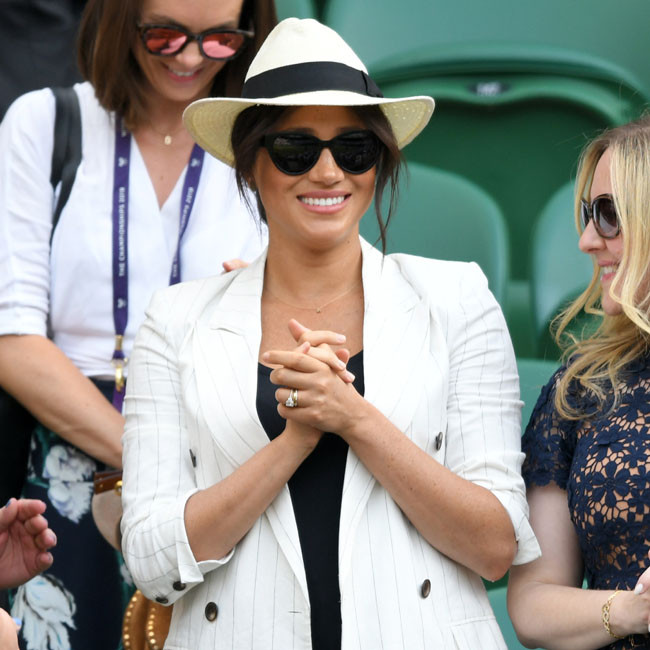The Duchess of Sussex secretly supported Naomi Osaka after she withdrew from the French Open.
The 23-year-old tennis player opted out of the tournament in May in a bid to preserve her mental health and she’s now thanked those who offered her encouragement following her decision, including the former actress, who was known as Meghan Markle before her marriage to Prince Harry.
In an essay for TIME magazine, Naomi wrote: “I want to thank everyone who supported me. There are too many to name, but I want to start with my family and friends, who have been amazing.
“There is nothing more important than those relationships.
“I also want to thank those in the public eye who have supported, encouraged and offered such kind words. Michelle Obama, Michael Phelps, Steph Curry, Novak Djokovic, Meghan Markle, to name a few.
Michael Phelps told me that by speaking up I may have saved a life. If that’s true, then it was all worth it.”
Naomi previously appeared as a guest on Meghan – who is a keen tennis fan – and Harry’s first podcase for Archewell Audio on Spotify in December 2020.
Ahead of the French Open, Naomi announced she wouldn’t be doing interviews to preserve her mental wellbeing and she was subsequently hit with a $15,000 fine after failing to fulfill her media obligations after winning her first match.
She ultimately decided to pull out of the tournament as she “never wanted to be a distraction”.
She added: “I accept that my timing was not ideal and my message could have been clearer. More importantly, I would never trivialise mental health or use the term lightly.”
In her time essay, the sportswoman told how she felt a lot of “pressure” to be candid about her mental health issues when she withdrew.
She wrote: “In any other line of work, you would be forgiven for taking a personal day here and there, so long as it’s not habitual. You wouldn’t have to divulge your most personal symptoms to your employer; there would likely be HR measures protecting at least some level of privacy.
“In my case, I felt under a great amount of pressure to disclose my symptoms — frankly because the press and the tournament did not believe me.
“I do not wish that on anyone and hope that we can enact measures to protect athletes, especially the fragile ones.
“I also do not want to have to engage in a scrutiny of my personal medical history ever again. So I ask the press for some level of privacy and empathy next time we meet.”
